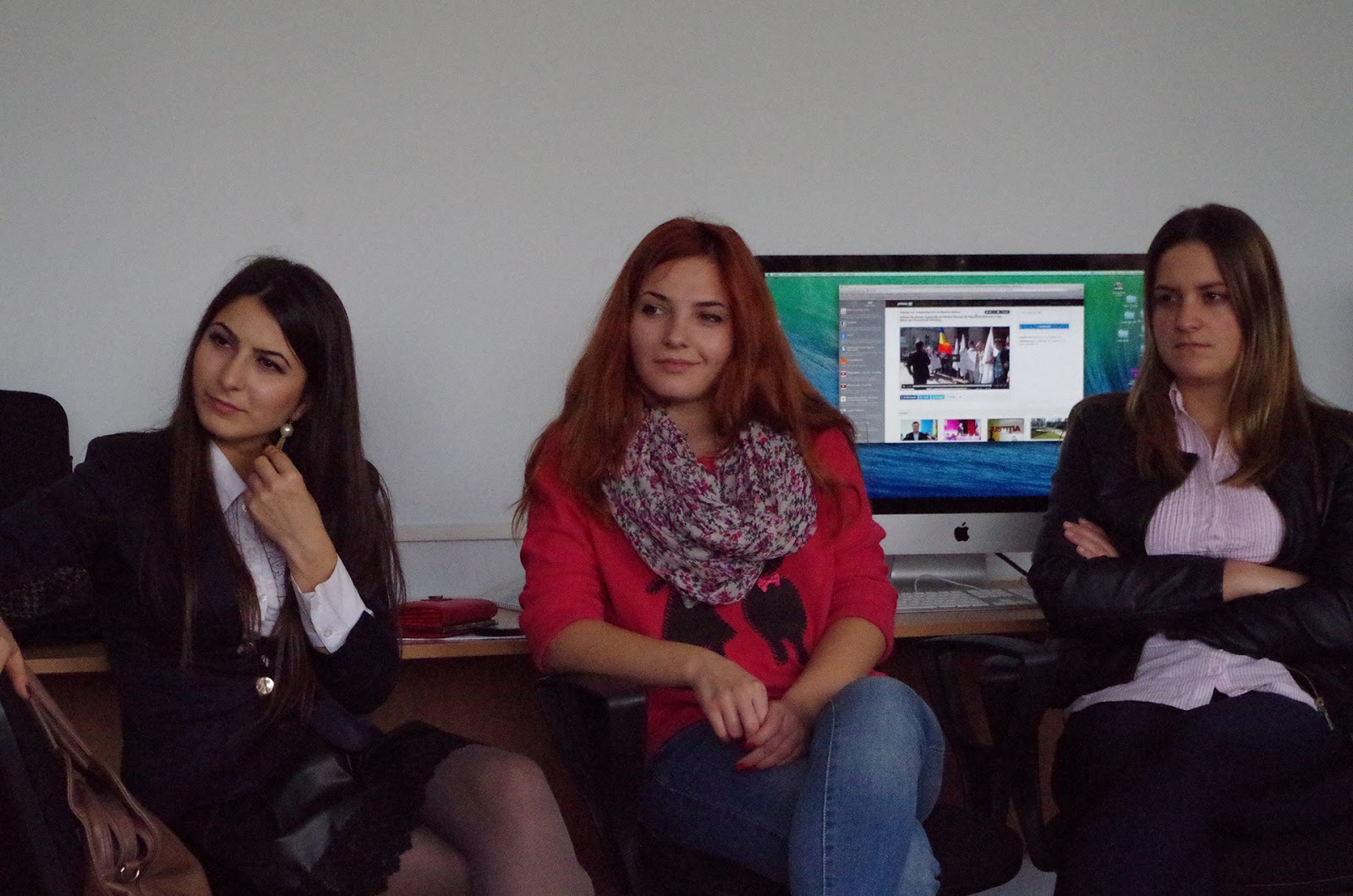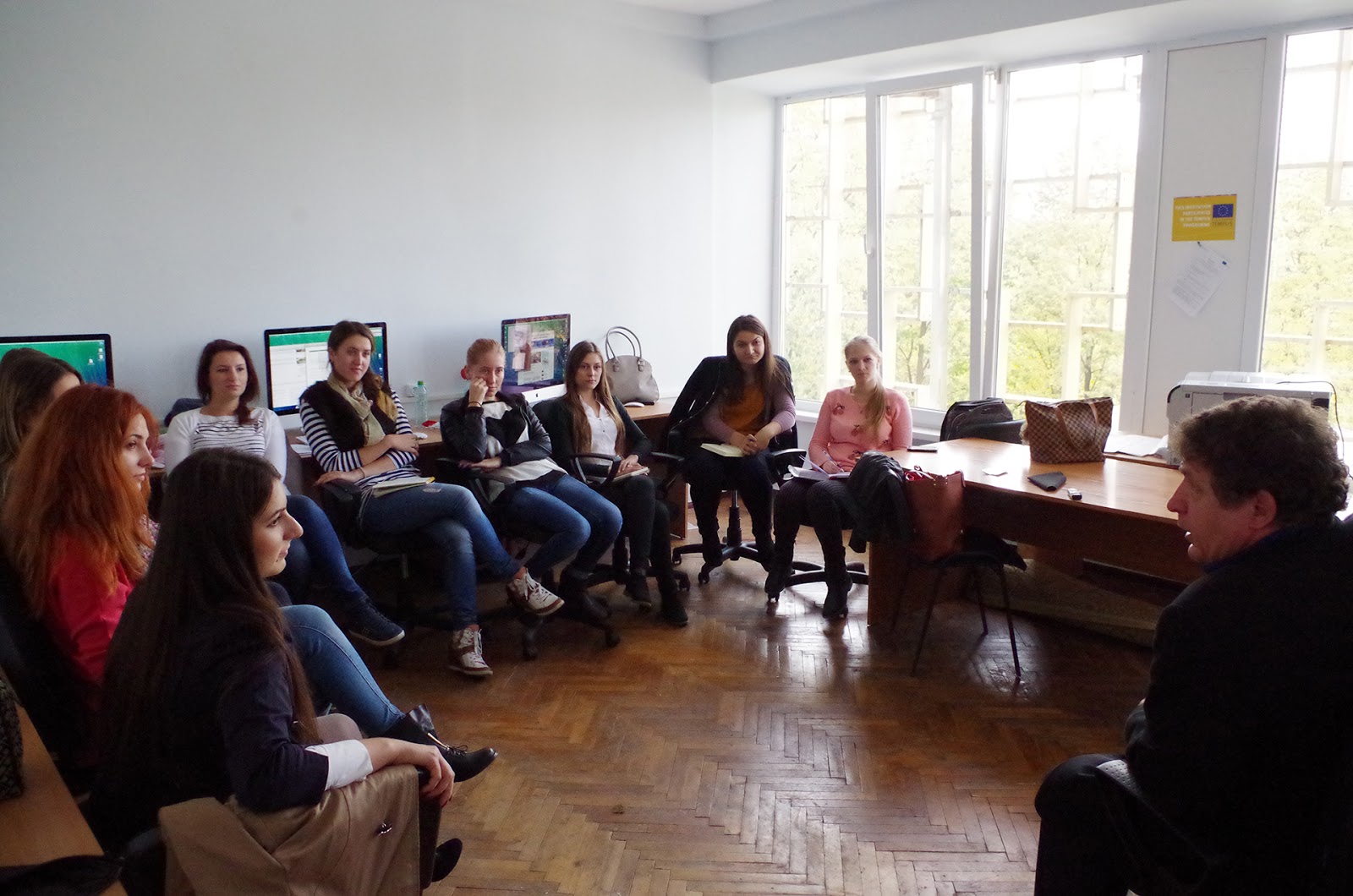 |
| Alexandru Cantir |
In the fourth
week of the TV journalism project,
students had the chance to meet
with some of the best journalists in Moldova. One of them is
Alexandru Cantir, one of the most famous professional journalists
from Moldova, who has a career in the field for several decades.
During the meeting, participants learned the success story of the
journalist, found details about the crisis and the collaboration
project during his career.
Alexandru Cantir
made his debut in journalism during the Soviet period. Curiosity
attracted him to quality journalism and not propaganda-type of
journalism, packed in boxes as it was at that time. He began working
as a reporter since the second year of faculty.
One of the most
important periods of his career, as he said, was in 1992 when he
became a war correspondent and an officer, in same time, in the armed
conflict on the Dniester. It was a short period, but this made him
stronger and more attentive to the things that are happening around
and about the decisions that a journalist had to take in his career.
After a brief
period, with his colleague Vasile Botnaru, he founded the first
independent news agency in Moldova, BASA-PRESS Agency, which
presented a new approach of journalism to social reality, also being
a phenomenon on Moldavian media market. In the same period, he began
a fruitful collaboration with the BBC team in Romania which lasted
until 2006, classifying it as the best time of his career. In
present, Alexandru Cantir is editor-in-chief of the news agency
IMEDIA and also he is moderator of the morning show "Moldova on
7" on Radio Free Europe in Chisinau.
Talking with future journalists about the current situation of the media in Moldova, Alexandru Cantir noted: „Unfortunately, now I have more disappointments about how journalism works in our country. Until a few years ago, there was a kind of care and dedication to the profession, nowadays the importance of journalism profession begun to trivialize. It trivializes because it was turned into a business, because when the foundation of each media channel is placed strictly according commercial or political interests, then things start to go crazy. Those journalists and editors no longer complies with the rules of ethics.”
In all these
years of journalism, he has created a personal and professional
ethics, namely: truth above all, no matter what effect it has. „I
had no bosses to dictate me other than law of profession, even if I
had conflicts with some newsrooms where I worked,” said Cantir.
Asked by students which are the problems that young journalists have when they go to engage, Alexandru Cantir said that „few of them know how to impress the editor. Also few of them know the language perfectly and this is a big problem, because if you don’t know the language you have no idea how to send the message to the public. Another problem is the readiness for a job like this, because to be a journalist requires a special passion and a good grounding to feel comfortable psychologically. Otherwise, you might feel tempted to quit and get retrained.”
At the end of the
meeting, the journalist gave an advice to all those who wish to enter
the field of journalism. He said that a good journalist must be good
in all spheres: in newspapers, and radio and TV, there is no good
journalist in only one area. And over the years it was shown that to
become a good journalist it needs a lot of work and sometimes even
sacrifices.
by Cristina Curcan



No comments:
Post a Comment